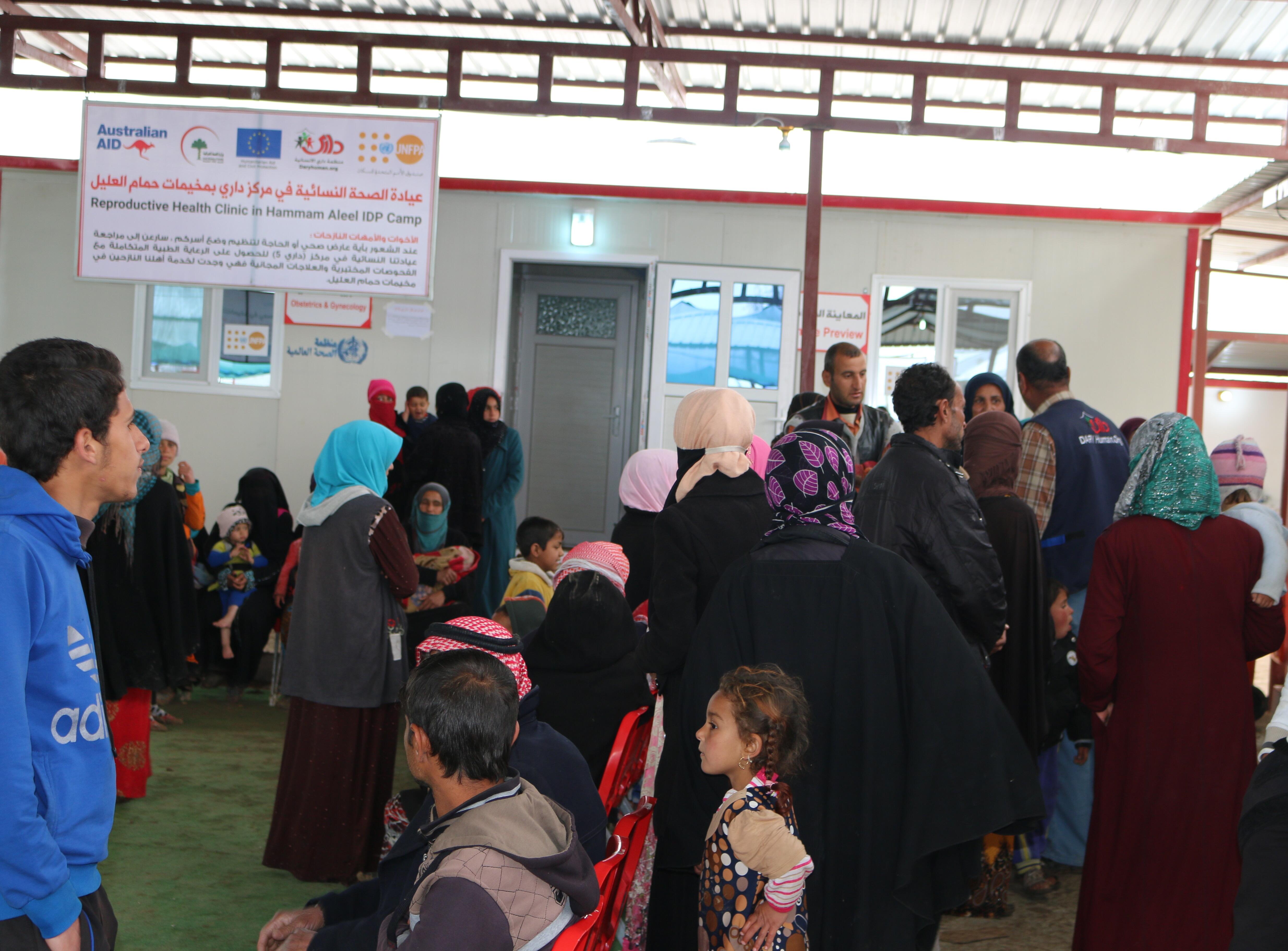Baghdad, Iraq, 19 March 2017 – As more people flee the current fighting in the West of Mosul city reaching around 97,000 individuals, UNFPA is stepping up efforts to meet their reproductive health needs and gender-based violence concerns.
In Qayarra and Jadaa camps currently hosting over 50,000 individuals and still receiving more families from West Mosul, UNFPA is supporting a delivery room that is operating twenty four hours a day as well as a mobile reproductive health clinic. Attached to the delivery room is also a woman safe space that is providing psychosocial support and case management services to women including survivors of gender-based violence. In addition, UNFPA is providing hourly shuttles to facilitate transportation for women and girls seeking health and psycho-social support.
In Hammam Aleel camp that is accommodating over 24,000 individuals displaced from West Mosul, UNFPA has established a reproductive health clinic and is also in the process of establishing a twenty-bed capacity field maternity hospital that will be running by the end of March 2017. In Khazir and Hassan Sham camps where IDPs from West Mosul have started arriving, UNFPA is supporting a static delivery room and a mobile delivery unit operating on a twenty-four hour basis as well as psychosocial and gender based violence case management services through women safe spaces in the camps.
As more districts and neighbourhoods are retaken by Iraqi forces in West Mosul, UNFPA in turn rolls out its frontline emergency interventions. Recently, UNFPA provided the Ministry of Health with nine ambulances for emergency referral and supported the distribution of more than 5,000 dignity kits in addition to 725 dignity kits distributed inside West Mosul as part of the emergency multi-sectoral response mechanism coordinated with UNICEF and WFP. In addition, UNFPA has deployed a mobile delivery unit in Tal Abta neighbourhood close to Telafar district and is currently supporting the establishment of a new twenty-bed capacity field maternity hospital in Athba neighbourhood.
Meanwhile, UNFPA is also continuing to provide its lifesaving frontline emergency response in East of Mosul where approximately 750,000 people still reside. One of UNFPA’s crucial interventions was the


